Boiling Point: Is it ethical to have children in the face of climate change?
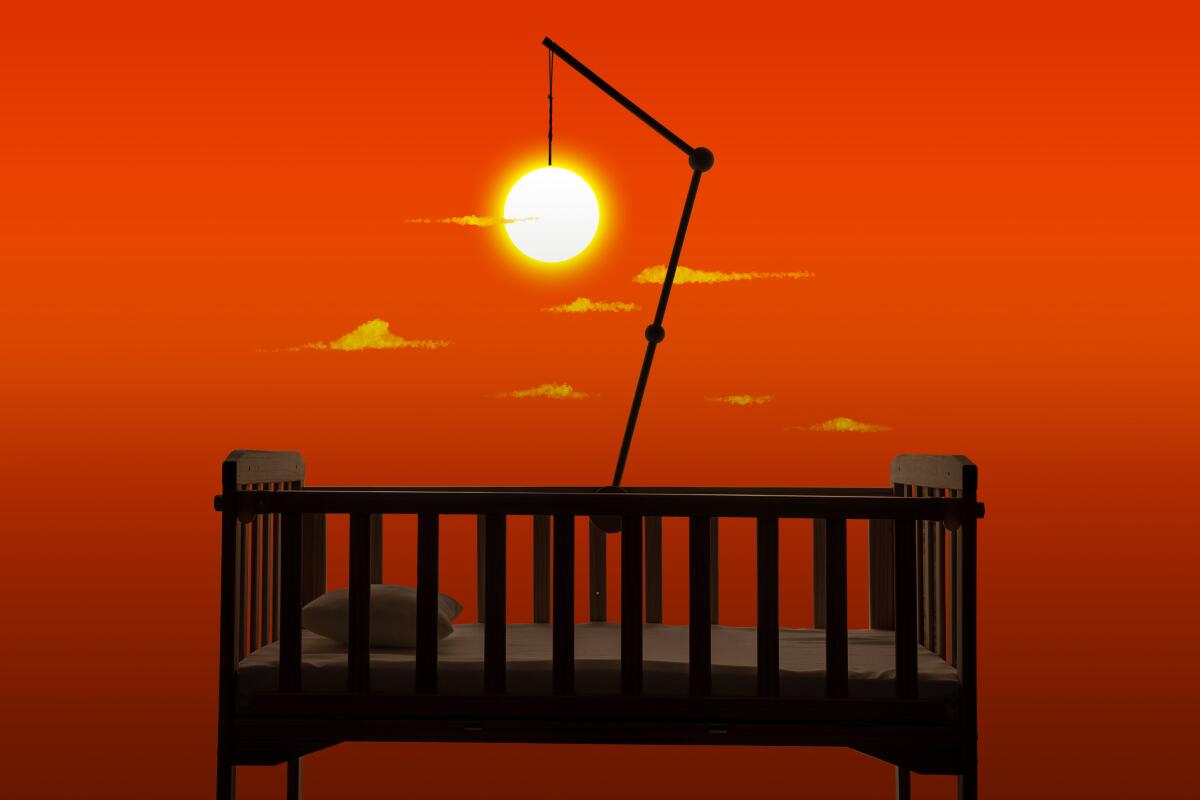
- Share via
Welcome to Boiling Point. I’m Hayley Smith, a staff writer on The Times’ climate team filling in for my colleague Sammy Roth.
As an environment reporter who covers climate change in California, I think a lot about the challenges facing our state and the planet — rising global temperatures, worsening wildfires and deadly heat waves, to name a few.
But here’s something else. I’m currently 8½ months pregnant with my first child.
“A pregnant climate reporter?” you might think. “Isn’t that a contradiction?”
Indeed, one of the conversations I’ve had a lot during my pregnancy — both with myself and with others — is about whether it’s ethical or even wise to bring a new person into the world at a moment of escalating crises. It’s partly why it took me many, many years to arrive at this personal decision.
But I know I’m not alone. In her book “Matrescence: On Pregnancy, Childbirth and Motherhood,” author Lucy Jones writes about how “long-forgotten senses, fears and feelings bubbled up” when she became pregnant with her daughter.
“I looked at the predictions of climate breakdown and biodiversity collapse with a new intensity of alarm,” Jones writes. “She would be my age in 2047. How much of the Earth would still be habitable then?”
Such worries are borne out by data. A Pew Research Survey published in July found that among U.S. adults aged 18 to 49 who don’t plan on having kids, more than a quarter — 26% — cited “concerns about the environment, including climate change,” as a major factor.
Of the people over 50 who did not have kids, 6% cited the same reason, pointing to a generational divide that may be fueled by growing awareness of the issue, as well as increasing exposure to worsening climate hazards.
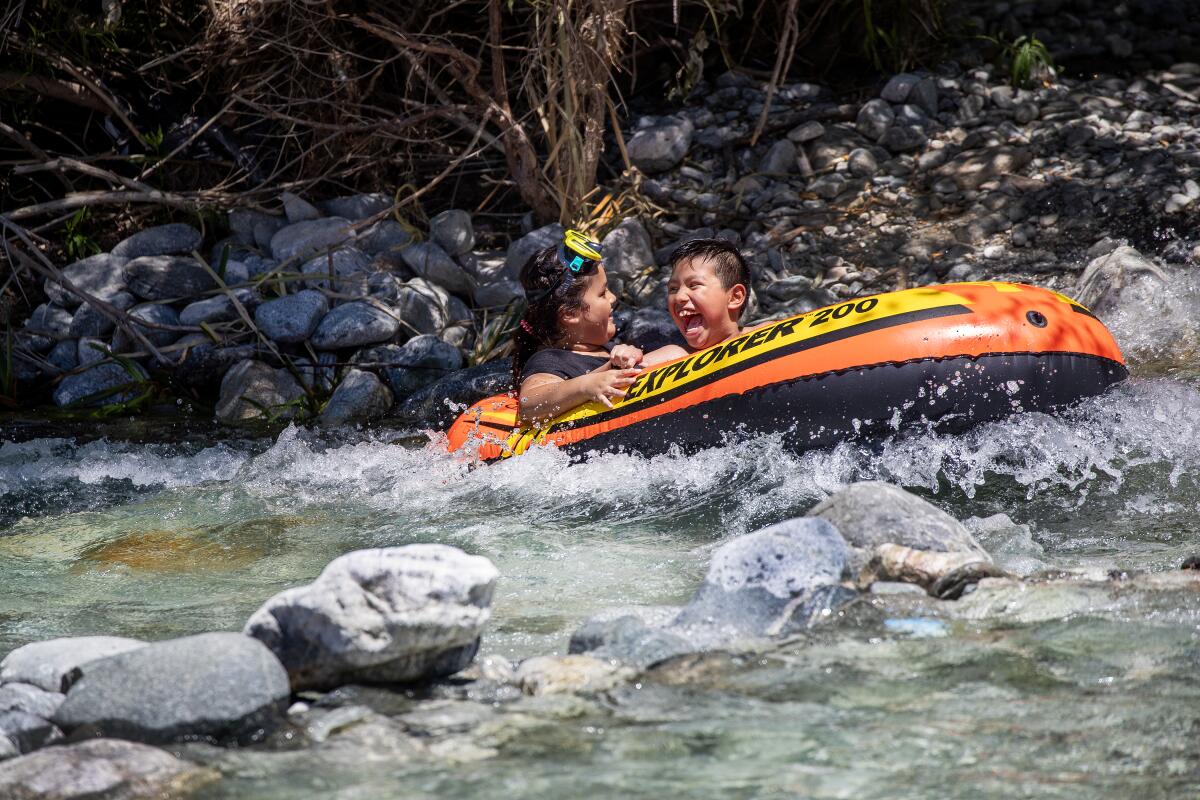
Personally, I’ve found myself thinking about the question in two ways. On one hand, I worry about the well-being of these kids: What kind of world will they live in? Will there be clean air and water? Will it be too hot or smoky to play outside? (To be blunt, the outlook on these matters doesn’t look great under most emissions scenarios.)
But the other side of the coin involves the well-being of the planet. Is it wrong to add more people at a moment when resources are so strained — when, say, the Colorado River is shrinking to record lows and the global average temperature is soaring to record highs? Each new child, after all, will bring not only a cute little footprint but a carbon footprint as well.
I asked some experts to weigh in.
Heather Houser, a professor at the University of Texas who studies reproduction and climate change, said the conversation around kids and climate has exploded across all forums over the last decade or so. But recently, it has shifted away from a focus on overpopulation and more toward the moral and philosophical questions.
“People are thinking a lot about the ethics of bringing a child into the world when there’s so much uncertainty in the already unfolding climate disaster,” Houser said. “It’s not unrelated to a question of overpopulation, but I think it gets more localized or individualized as, is it irresponsible — especially if you’re a high-consuming, wealthy-ish Westerner — to add another consumer to the world?”
Young people, in particular, are thinking long and hard about their options, in part because more and more of them have lived through major wildfires, hurricanes and other extreme weather events that are increasingly influenced by climate change.
“People are like, ‘Wait a second, I went through that, and how would I get a child or a family through that?’” Houser said.
Jade Sasser, an associate professor of gender and sexuality at UC Riverside, drills into the demographics even further in her new book, “Climate Anxiety and the Kid Question: Deciding Whether to Have Children in an Uncertain Future.”
She found that for Gen Z in particular, climate change is one of several compounding stressors that inform their decision on whether or not to have kids — along with financial concerns and fears around finding the right partner. Such concerns tend to be outsized for the youngest members of the cohort.
“What Gen Z tends to know, more so than other generations, is that population growth doesn’t cause climate change — that consumption of resources, production of oil and gas, cutting down of forests, these things cause climate change, and they are not necessarily driven by human numbers,” Sasser said. “They’re driven by politics, policies and inequitable consumption patterns in the world.”
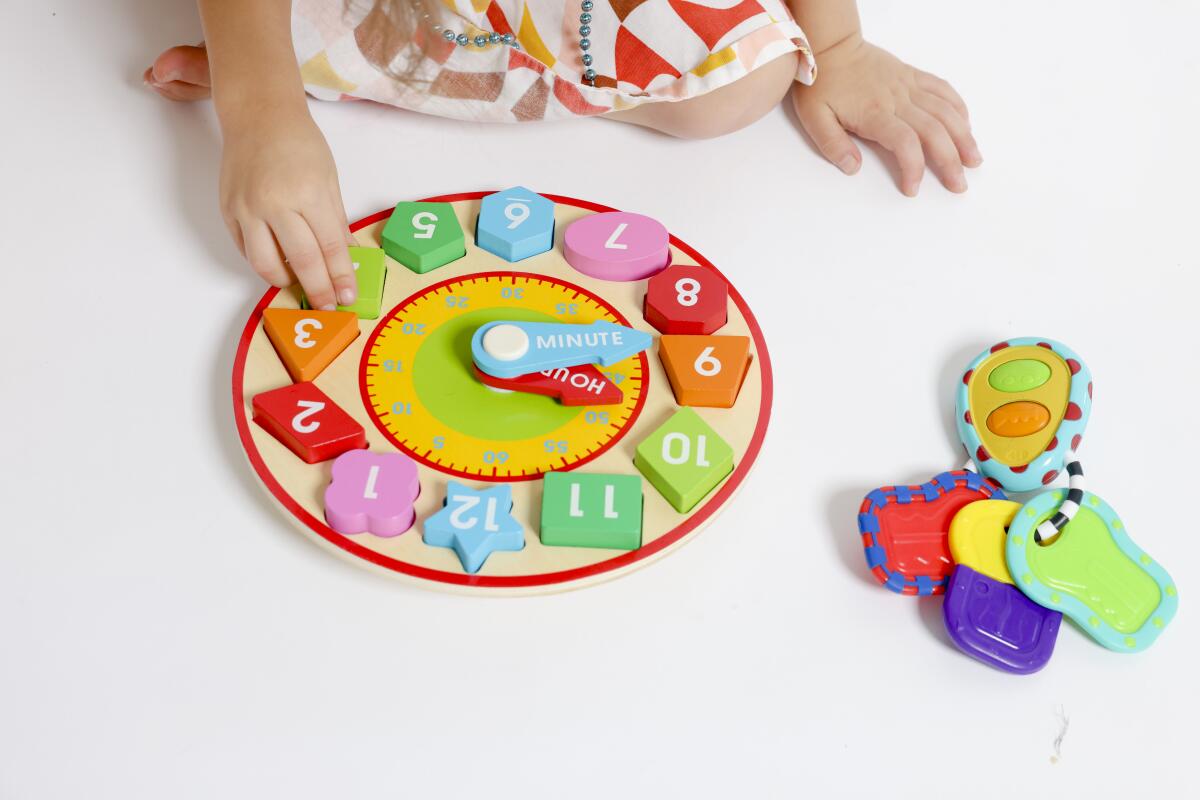
As someone who is firmly in the (elder) millennial camp, I’ve also found myself compelled by the question of whether things are truly as bad as they can sometimes feel. A common counter-argument to the climate-and-kids question is that every generation has faced hardships, and that for many people, the quality of life today is better than it’s ever been.
That may be true. But while world wars, disease, stock market crashes and nuclear threats have certainly weighed on past generations, there is something unique about the ways in which climate change is unfolding, Houser said.
Wars may not follow a lot of rules, “but they seem more rule-abiding than something like climate change,” she said. “Almost every month or so, there’s a study that finds it is happening faster or in a way we hadn’t predicted.”
Such uncertainty can add to people’s fears and concerns about parenting, which is already an unpredictable endeavor. But there is also uncertainty about how humanity will adapt to climate change — and any calculations we make today about a child’s future emissions may well prove to be wrong in 20 or 30 years, depending on how technology and other social factors evolve, Houser said.
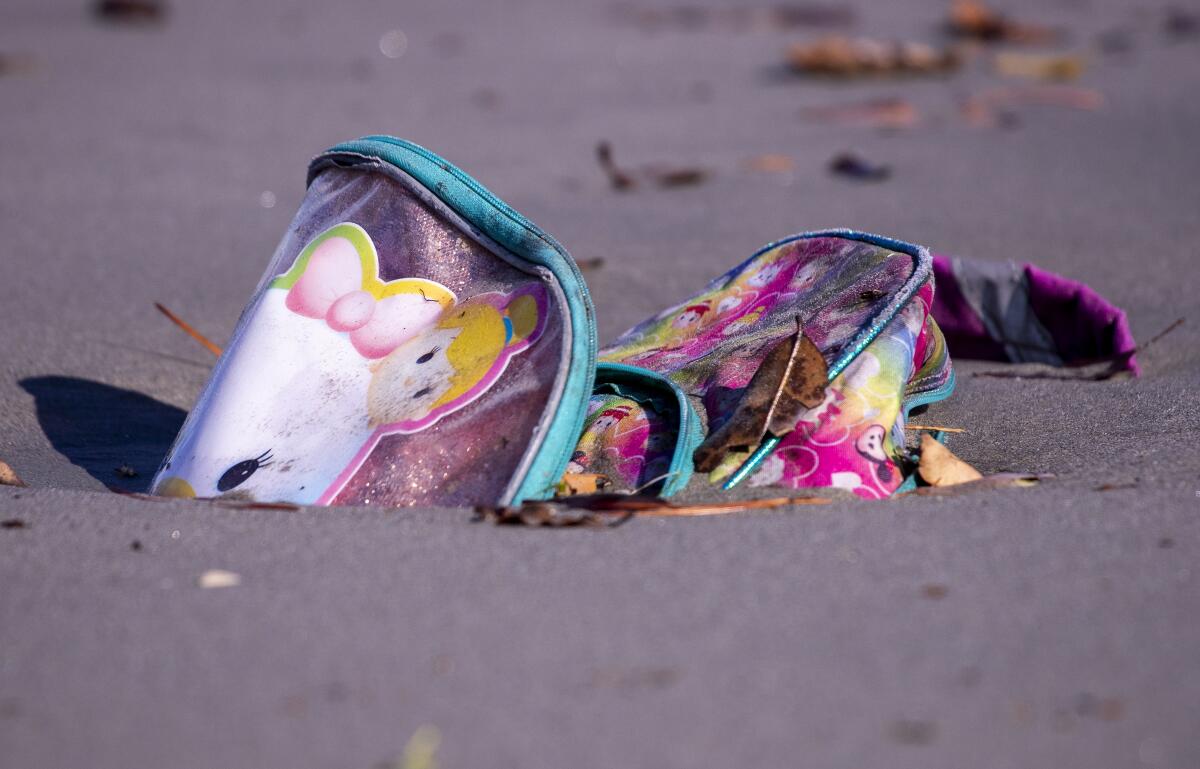
The other elephant in the room (besides me, at the moment) is that kids can come with a lot of crap — and I don’t mean the kind that fills diapers. Since I’ve gotten pregnant, I’ve been inundated with algorithmically driven content telling me everything I must buy to prepare for my baby’s arrival: There are plastic toys and plastic sheets and plastic bottles and disposable diapers and disposable wipes and disposable underwear and fast-fashion maternity clothes and ... oh, by the way, all of it will arrive in cardboard boxes that have been shipped from across the world and loaded onto fossil-fuel powered trucks and driven to my front door.
It’s a lot.
But here’s the thing about all of that: Much of this pressure, along with the larger existential question, falls on women, or people with reproducing bodies, rather than the oil companies, large corporations and international governments driving the majority of climate change. I also don’t think it’s a coincidence that women are being asked to weigh the future of the planet while simultaneously being forced to worry about their own reproductive rights and freedoms being stripped away.
Sasser agreed.
“Women, of course, have never been alone in creating families — but the duty, the burden, the responsibility, the questions of agency, have always been unevenly and unfairly placed onto women,” she said. “And it is absolutely not a coincidence, and highly ironic, that these issues are coming together in such an important way — requiring women to take on an undue burden around these questions of whether or not to have children in this salient moment, and being mocked for it by people like JD Vance referring to women as as ‘childless cat ladies’ if they opt not to have kids.”
Vance, the Republican vice presidential candidate, has said that people without children have no direct stake in the country’s future and therefore their votes should count less. He said childless leaders “disturb” him and concurred with a podcast host who said post-menopausal women’s only role in society is to be grandmothers. He is also a strong supporter of the oil and gas industry and has been dismissive of concerns about climate change.
“I can’t imagine being more out of touch than that,” Sasser said, adding that it “fundamentally comes down to never, ever, having to actually face these questions as a matter of what you’re doing with your own body.”
Yet even as Vance and other pro-natalist figures such as Elon Musk wring their hands about population decline, the fact is that climate change is also affecting reproduction.
Hotter temperatures and air pollution, for instance, have been linked to increased stillbirths, preterm births, lower birth weight and increased risk of hospitalization for newborns and infants, among other negative outcomes. Pregnant people are also especially vulnerable to climate hazards, which can trigger hypertension and other health issues and contribute to reduced fertility rates.
Yet climate planning rarely accounts for their needs. A 2020 analysis by Buzzfeed News examined heat emergency plans across 25 major U.S. cities and found that only two, Chicago and Philadelphia, mentioned pregnant people at all.
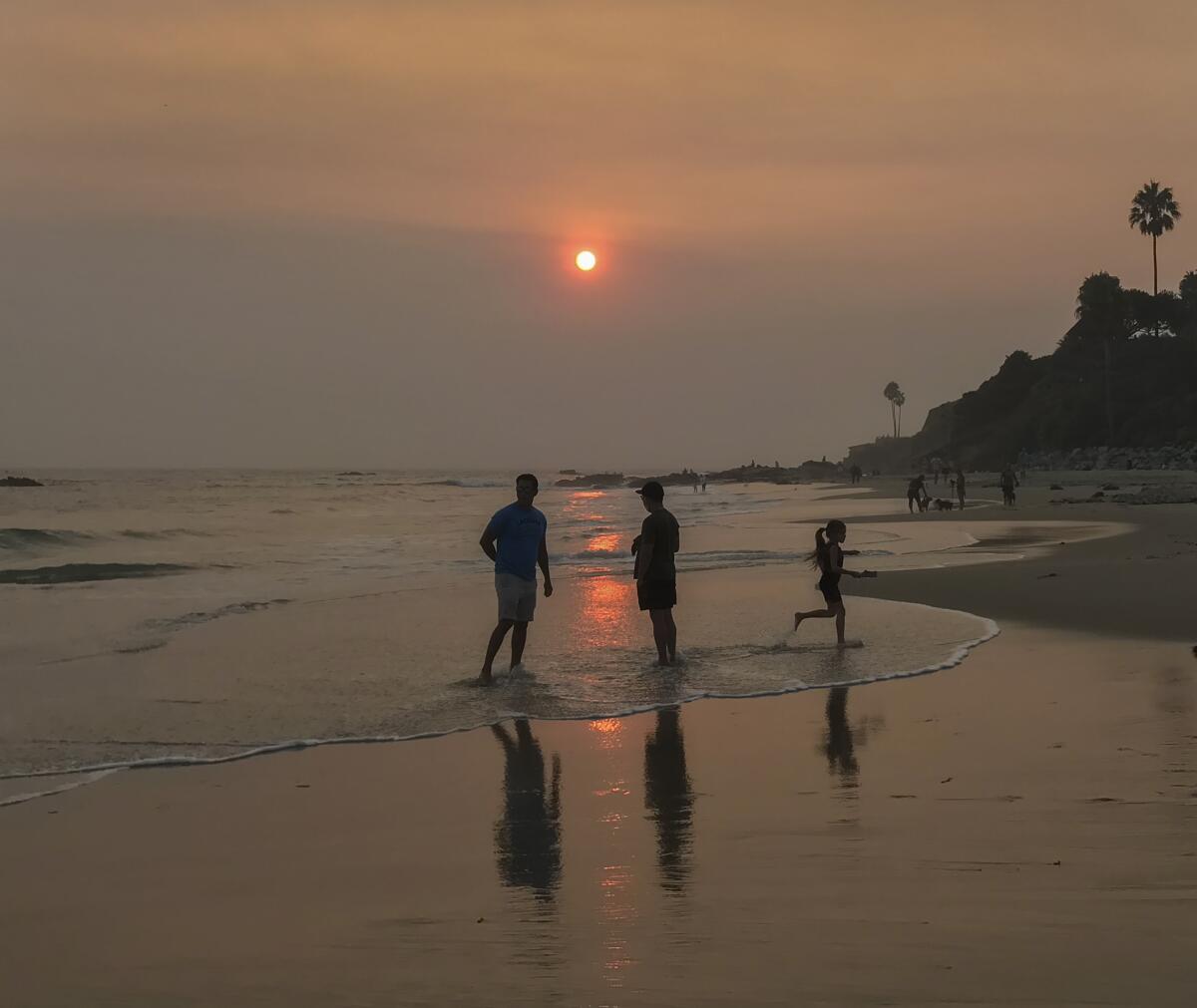
The injustice is even worse for pregnant people of color, who are more likely to be disproportionately burdened by environmental harms such as air pollution from freeways and leaking oil wells in their neighborhoods, or hotter temperatures from lack of shade and the urban heat island effect. In fact, Sasser found that race is often excluded from demographic data about climate change and reproduction, and that non-academic accounts and popular media about the topic tend to focus on young, white, middle-class people.
“It leads people to assume that people outside of that group don’t care or aren’t impacted as strongly as those people are, which is not the case,” she said.
A national survey included in her book found that women of color are the most likely group to have fewer children than they want because of their feelings about climate change. What’s more, a recent survey by the Yale Program on Climate Change Communication found that Black and Latino people are experiencing more anxiety about climate change than their white counterparts.
Still, the conversation is evolving. In her book “The Quickening,” author Elizabeth Rush writes about deciding to have a baby the same year she traveled to the melting Thwaites Glacier in Antarctica. As I have done, Rush weighs her future child’s potential contributions to global warming and notes that their individual greenhouse gas emissions will cause roughly 50 square meters of sea ice to melt each year they are alive.
At the same time, she finds some freedom in an alternate way of thinking, writing: “I can celebrate the idea that to have a child means having faith that the world will change, and more importantly, committing to being a part of the change yourself.”
That’s largely what these nine long months of excitement, stress, nausea, exhaustion, worry and joy have revealed to me.
In fact, I’ve been surprised by how optimistic pregnancy has made me feel, considering how much time I spend dwelling on the world’s climate challenges. The nature of my job means that I’ve seen firsthand the toll that fires, floods, heat waves and other hazards take on people’s lives in a way that few others will experience.
But I’ve often found that if I’m not careful, those concerns can turn to nihilism — to a sense that we’re all doomed, so why bother?
Instead, pregnancy has felt like a radical and at times political act in the face of these real and serious challenges. Children, after all, are one of the clearest symbols of how we, as a society, feel about the future. And for the first time in a long time, I’m feeling pretty hopeful.
This is the latest edition of Boiling Point, a newsletter about climate change and the environment in the American West. Sign up here to get it in your inbox. For more climate and environment news, follow @Sammy_Roth and @whereishayley on X.
Toward a more sustainable California
Get Boiling Point, our newsletter exploring climate change, energy and the environment, and become part of the conversation — and the solution.
You may occasionally receive promotional content from the Los Angeles Times.




